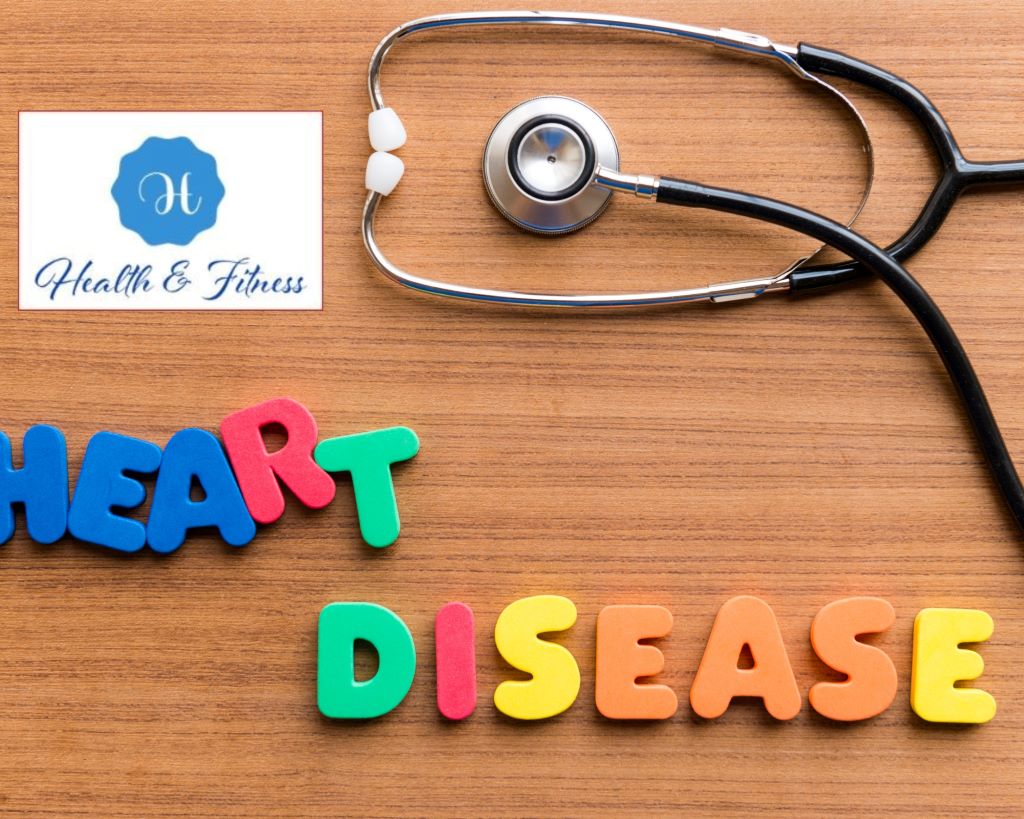Learn effective strategies for managing diabetes and heart diseases to achieve better health. Expert advice for a healthier life.
Introduction
Unlock the path to Better Health by effectively managing diabetes and heart disease. Our blog post provides valuable insights, tips, and strategies to improve your overall well-being. Discover how to take control of your health and lead a fulfilling life with our expert advice. Say hello to Better Health today!
Better Together: A Guide to Managing Diabetes and Heart Disease for Optimal Health Diabetes and Heart Disease are two of the most prevalent chronic health conditions facing people today. While these conditions can be challenging to manage, taking an active role in your health and working with a healthcare team can help you achieve better health outcomes.
In this article, we’ll explore the basics of Diabetes and Heart Disease, including the connection between the two conditions, the importance of managing both, and effective strategies for coping with the emotional impact of living with chronic health conditions. With the right information, resources, and support, you can take control of your health and improve your quality of life.
Diabetes and Heart Diseases
They are two of the most common chronic health conditions millions face worldwide. While these conditions are often considered separate issues, they are closely linked. Heart disease is more common in those with Diabetes, while Diabetes is more common in those with heart disease.
This is why managing both conditions and understanding their connection is crucial. This post will provide you with all the information you need to understand them better and how to manage them effectively. We’ve covered whether you live with these conditions or want to learn more about them.
So, let’s dive into the world of Diabetes and Heart Disease and learn how to live a happy and healthy life, despite these conditions!
Importance of managing both Diabetes and Heart Diseases
They are serious health conditions that require careful management to prevent serious complications. A variety of major health issues can develop from Diabetes that is not managed, including nerve damage, kidney disease, blindness, and amputations.
On the other hand, this Disease is the leading cause of death globally, and people with Diabetes are at higher risk of developing it. That’s why it’s so important to manage both Diabetes and Heart Disease effectively. Proper management can help prevent serious complications, improve quality of life, and reduce the risk of death.
By managing both conditions, you can take control of your health and improve your overall well-being. In this post, we’ll discuss the different ways you can manage Diabetes and Heart Disease, from lifestyle changes to medication and monitoring. By taking a comprehensive approach to your health, you can stay one step ahead of these conditions and live a long, healthy life. So, let’s get started!
Understanding Diabetes

Definition of Diabetes
Diabetes is a chronic condition in which the body cannot properly use and store glucose (sugar) from our food. Glucose is the body’s main energy source, and when it can’t be properly used, high blood sugar levels are associated with various health issues.
Different Kinds of Diabetes
Type 1, Type 2, and Gestational Diabetes are the three most common forms of the Disease.
- Insulin-producing cells are targeted and destroyed by the immune system in type 1 diabetes., the hormone that regulates glucose in the blood. As a result, people with Type 1 Diabetes must take insulin injections or use an insulin pump to manage their condition.
- The majority of people who have Diabetes have type 2 diabetes which occurs when the body becomes resistant to insulin or doesn’t produce enough insulin. This can be because of genetics, lifestyle, and age.
- High blood sugar levels might result from gestational Diabetes during pregnancy. Though symptoms subside after giving birth, women who have experienced gestational Diabetes are more likely to acquire Type 2 diabetes in the future.
Symptoms and Causes
The symptoms of Diabetes can include frequent urination, excessive thirst, constant hunger, fatigue, blurred vision, slow wound healing, and tingling or numbness in the hands or feet. The exact cause of Diabetes is unknown, but several risk factors can increase your chances of developing the condition. These risk factors include genetics, age, obesity, physical inactivity, and a family history of Diabetes.
Importance of Proper Management
Proper management of Diabetes is crucial to prevent serious complications, such as heart disease, kidney disease, nerve damage, blindness, and amputations. This may include lifestyle changes, such as maintaining a healthy diet, being physically active, managing stress, taking medications as prescribed, and keeping a close eye on your glucose levels. By working with a healthcare team and following a comprehensive management plan, you can effectively manage your Diabetes and live a healthy, happy life.
Understanding Heart Disease

Definition of Heart Disease
Diseases affecting the Heart and blood arteries are often referred to as heart disease. It is the leading cause of death globally and includes conditions such as coronary artery disease, heart attacks, heart failure, and arrhythmias.
Causes and Risk Factors
The exact causes of Heart Disease can vary; however, the most prevalent risk factors include high blood pressure, high cholesterol, smoking, obesity, physical inactivity, and a family history of heart disease.
Symptoms and Diagnosis
Heart disease symptoms can vary, including chest pain, shortness of breath, palpitations, and fatigue. To diagnose Heart Disease, your doctor may perform various tests, such as a stress test, an electrocardiogram (ECG), or a coronary angiogram.
Importance of Proper Management
Proper management of Heart Disease is crucial to prevent serious complications and improve quality of life. This may include lifestyle changes, such as maintaining a healthy diet, being physically active, quitting smoking, managing stress, taking medications as prescribed, and regularly monitoring your heart health. By working with a healthcare team and following a comprehensive management plan, you can effectively manage your Heart Disease and reduce your risk of serious complications.
The Diabetes and Heart Disease Link

How Diabetes makes people more likely to get heart disease
“Discover essential insights into managing Diabetes and Heart Diseases. Individuals with Diabetes face a higher risk of heart disease because of elevated blood sugar which damages blood vessels, leading to increased fatty deposits in arteries, raising the likelihood of heart attacks and strokes. Additionally, those with Diabetes often contend with elevated blood pressure and cholesterol, further compounding their risk for Heart Disease.”
How Heart Disease Impacts Diabetes Management
Heart Disease can also have a significant impact on the management of Diabetes. For example, heart attacks and strokes can cause nerve damage and impair circulation, making it more difficult to manage blood sugar levels. Many medications used to treat Heart Disease can also affect blood sugar levels, making it important for people with both conditions to closely monitor their health and work closely with their healthcare team.
Importance of Managing Both Conditions
Given how closely Diabetes and Heart Disease are linked, people with both conditions must manage them effectively. This may include making lifestyle changes, taking medications as prescribed, and regularly monitoring blood sugar levels and heart health. By working closely with a healthcare team, you can take control of your health and reduce your risk of serious complications.
Managing Diabetes and Heart Disease
Lifestyle Changes
Making lifestyle changes is crucial to managing Diabetes and Heart Disease.
This may include:
- Eating a healthy, balanced diet that is low in saturated fat and high in fiber
- Being physically active regularly
- Quitting smoking
- Managing stress through activities such as meditation, yoga, or exercise
- Maintaining a healthy weight
Medications
Medications are often an important part of managing both Diabetes and Heart Disease. For example, people with Diabetes may take insulin or other medications to control blood sugar levels. In contrast, people with Heart Disease may take medications to control blood pressure, reduce cholesterol levels, or prevent blood clots. Taking medications as prescribed and monitoring your health is important to ensure they work effectively.
Monitoring
Regular monitoring is an important part of managing both Diabetes and Heart Disease. This may include regularly checking blood sugar levels, monitoring blood pressure, and having regular check-ups with your healthcare team. You can detect changes early on by monitoring your health regularly and taking appropriate action to prevent serious complications.
Working with a Healthcare Team
Working with a healthcare team is crucial for managing Diabetes and Heart Disease effectively. Your healthcare team may include a primary care physician, specialist, dietitian, and others, and they can help you develop a comprehensive management plan tailored to your specific needs. By working closely with your healthcare team, you can take control of your health and reduce your risk of serious complications.
Coping with Diabetes and Heart Disease
Emotional Impact
Living with Diabetes and Heart Disease can be emotionally challenging. It is normal to experience stress, anxiety, and depression, especially when faced with the ongoing management and monitoring required to maintain good health.
Coping Strategies
Many strategies can help you cope with both conditions’ emotional impact. Some effective coping strategies include:
- Building a support network: Surrounding yourself with supportive friends and family members can help you feel less isolated and more supported.
- Practising self-care: Taking time to relax and engage in activities you enjoy can help reduce stress and improve your mood.
- Seeking professional support: Talking to a mental health professional can help you manage stress and anxiety and provide coping strategies that work for you.
- Joining a support group: A support group of people with similar experiences can help you feel less isolated and more connected to others.
Finding Help and Support
Many resources are available to help you cope with the emotional impact of living with both Diabetes and Heart Disease. This may include support groups, counselling services, online communities, and support hotlines. By seeking help and support, you can take control of your emotional well-being and improve your quality of life.
Conclusion
Diabetes and Heart Disease are serious conditions that require ongoing management and monitoring.
By understanding these conditions, making lifestyle changes, taking medications as prescribed, and working with a healthcare team, you can take control of your health and reduce your risk of serious complications.
Additionally, by coping with the emotional impact of living with both conditions, you can improve your quality of life and feel more empowered and in control.
Note:
Remember, the key to managing Diabetes and Heart Disease is to take an active role in your health and work closely with your healthcare team. You can live a full and healthy life despite these conditions with the right resources and support.
References
- American Diabetes Association. (2021). Standards of Medical Care in Diabetes – 2021. https://care.diabetesjournals.org/content/44/Supplement_1
- World Health Organization. (2021). Diabetes. https://www.who.int/news-room/fact-sheets/detail/diabetes
- Mayo Clinic. (2021). Diabetes and Heart Disease: What’s the Connection? https://www.mayoclinic.org/diseases-conditions/heart-disease/in-depth/diabetes/art-20044295



